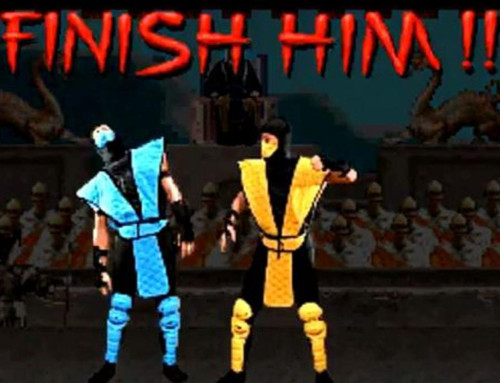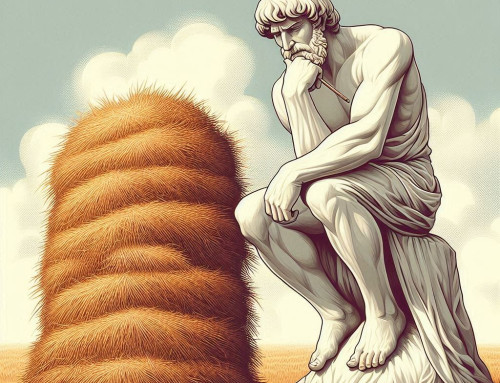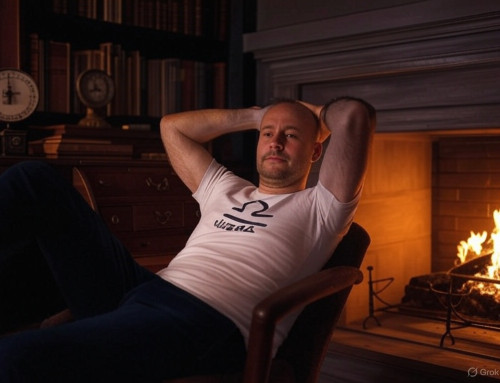There are so many choices in life! What you choose to wear, your choice of hair style, your career, the vehicle you drive, your friends, what to eat, your choice of suffering, so many choices! You read correctly, your choice of suffering. Have your chosen yours yet? What’s that? You don’t want to suffer? Sorry, that’s one choice I don’t suggest making, or it will be made for you. I know it’s hard to accept, but we all must suffer. This is especially true as a martial artist.
I know it sounds terrible, but suffering is an important part of life. Without it, we can’t fully appreciate happiness. This is essentially the point of the yin/yang symbol in Japanese culture. Or in the Korean culture, the taeguk. Both the negative and positive must be present. Lose one, you lose them both. But what if you chose your suffering?
During World War II, the Japanese military sent soldiers out into the world to interrupt and cause problems for the enemy in any way they could. They were ordered to never surrender under any circumstances and to only return home when directly ordered by their superior. One such soldier, Hiroo Onada, was sent to the Philippines by Major Yoshimi Taniguchi. Onada was told he was forbidden to die by his own hand, and to never give up until someone was sent to bring him home. Onada did just that.
Even after Japan surrendered and the war was over, Onada and his unit continued to cause problems such as destroying crops, intercepting supplies, and killing anyone they saw as all communication was lost between the Japanese military and Onada. Eventually leaflets were dropped over the area he and his unit were believed to live in. These leaflets stated that the war was over, Japan had lost, and he should return home and stop causing problems. Onada believed these to be a trick to get him and his unit to stop. He continued to cause problems and did not return home. All attempts to find and notify him and his crew went unsuccessful for thirty years!
Eventually, an adventurer named Norio Suzuki decided to find him. Suzuki had no interest in living a “normal” life. He wandered around living off the land and always searching for something to make his life worth the suffering he imposed on himself. Suzuki set out to find Onada, as well as panda bear and the abominable snowman. In that order assumedly. Surprisingly, Suzuki found Onada! A task that no one else was able to do. Not only did he find Onada, but he also befriended him, as Onadas unit had all died over the thirty years they lived in the mountains of the island.
Suzuki then returned to Japan to notify Onadas commanding officer, Yoshimi Taniguchi, that Onada was still alive and following through on his orders. Taniguchi flew to the Philippines to directly speak with Onada and tell him personally that it was time to come home. On March 9 th , 1974, Hiroo Onada was relieved of duty. Norio Suzuki continued on to search for that wild panda and the Yeti! He was successful in finding the panda, but sadly, died in an avalanche while searching for the abominable snowman in the Himalayan mountains. I assume the Yeti caused the avalanche to not be caught.
Onada returned home to Japan to become a bit of a celebrity for being so loyal to Japan and its cause. However, the Japan he fought so hard for had been heavily transformed. He was too overwhelmed and disliked the cultural changes. He eventually moved to Brazil to settle down in a Japanese colony. He was asked if he had regretted spending thirty years in isolation, sleeping on the dirt and eating bugs to stay alive. His response? He had no regrets. He had chosen this suffering as he felt it was for a greater cause. And what about Suzuki, did he have any regrets? Absolutely not. His harsh life of always being on the move and living off the land was worth it to discover Onada. A task that was deemed impossible.
Change one small portion of the story above of these two men and their suffering would have been far too overwhelming. That change is choice. If they were forced to spend thirty years on an island sleeping in the dirt and eating bugs as a punishment or banishment, this whole story would be quite different. They chose their form of suffering. And they did so for a greater cause, a purpose. Suffering is inevitable. It’s going to happen. But this chosen suffering is different. It’s end result is rewarded or worth it.
If you’re a martial artist, you’ve already made this choice. Martial arts training is not easy and can be quite painful. It will test you on every level. Those three things usually send people running the other direction. Yet, we not only continue to train, most of us do so with permanent smiles on our faces. Every bump, every bruise, every bloody nose or broken bone, it’s all worth it. I’ve never heard anyone state that they regret their time training martial arts. The only regrets come from not starting sooner or quitting.
Sports training, exercising, choosing to eat a salad for lunch instead of a piece of cake, studying for a test, and so on, are all forms of choosing your suffering for most. We know that if we suffer a little right now to exercise, we help improve our health down the road. We all know this and most of us do the above mentioned or something similar. Yet, we look at living in isolation for thirty years and eating bugs as an awful experience. Which, for most of us, it is. What if you were told that you would save the life of a loved one? Or would receive fame and riches upon completion? Even if you wouldn’t choose this suffering, if you were forced to do it, these end results can help make it more bearable.
What I’m getting at here is, the suffering portion is going to be terrible no matter what. It’s the mindset that’s important. The lack of reason behind the suffering is what makes it unbearable. Not the suffering itself. If you were forced to live in the mountains for thirty years, eating bugs and sleeping on the dirt, your mindset is what can make it bearable. Believing it’s for a greater cause, or that you will be rewarded in the end can make a world of difference. This mind set gets us through life to determine if we enjoy life or hate it. As stated above, we all will suffer in some regard, but we can choose our response to it, and we can choose our form of suffering in many ways. We just need something bigger to suffer for, or an end goal to make it worthwhile.
What if we suffer for something, only to find out it wasn’t worth suffering for? Hiroo Onada experienced this to an extent when he became frustrated with the cultural changes in Japan upon his return. Did he throw up his hands and suddenly regret everything? Nope. While he did move out of Japan due to this, he moved to a Japanese colony in Brazil with those who shared his views. He also continued to love Japan. Before passing away in 2014, he returned to Japan to open a nature camp for Japanese youth. He made his suffering worth it, even if it wasn’t the way he expected.
Many people come to these crossroads in their martial arts training as well. Especially since the age of the internet. You know, that magical place where everyone has a rock solid opinion on everything that they absolutely must express, even things they know nothing about. Imagine you have been training this life changing art called Lame-Fake-Do for decades. It’s the most important thing in your life and it’s provided so much joy for you and makes you feel extremely confident in every situation. Then you read how Lame-Fake-Do is the worst martial art ever created. And how none of its techniques work in a real self-defense situation. What do you do?
You can give up, regret all of the time you spent training, and start all over in a different martial art with hopes that this new one is the best one. Or you can realize that every martial arts style has its critiques and downsides. You can recognize that this art you dedicated so much time to has provided a higher quality of life for you. You can also search for specific things that are great about your art and build on that. Maybe you can even supplement new techniques or a new martial arts style to help build portions you may feel aren’t great about your art. You can choose to make your suffering worthwhile.
Most people do this naturally as we don’t like being proven wrong. Have a discussion with someone who has an opposing political view to fully experience this. What I suggest though is to not just be blind to critiques in this manner, but to look deeper to discover more answers to help navigate forward. It’s rare to choose a path of suffering that involves immense effort and dedication and have it come away with nothing positive. Even for Hiroo Onada and his perceived suffering for essentially a lost cause, there were positives to extract from his experience to make it worth it.
Suffering is going to happen. But not all suffering is equal. I know it sounds strange that I suggest you go out and find a way to suffer. It’s not the suffering you are searching for, it’s the end goal, passion or loved one that you are searching for. The struggles and suffering will be on that patch. It’s your mindset that you choose that can get you through those suffering moments. There is always a silver lining, seek it out and use that as the driving force to help you deal with the suffering.
One thing I suggest against, however, is searching for the abominable snowman. This is clearly ridiculous. Bigfoot is much safer to search for. No avalanches in the forest. Good luck!







Leave A Comment